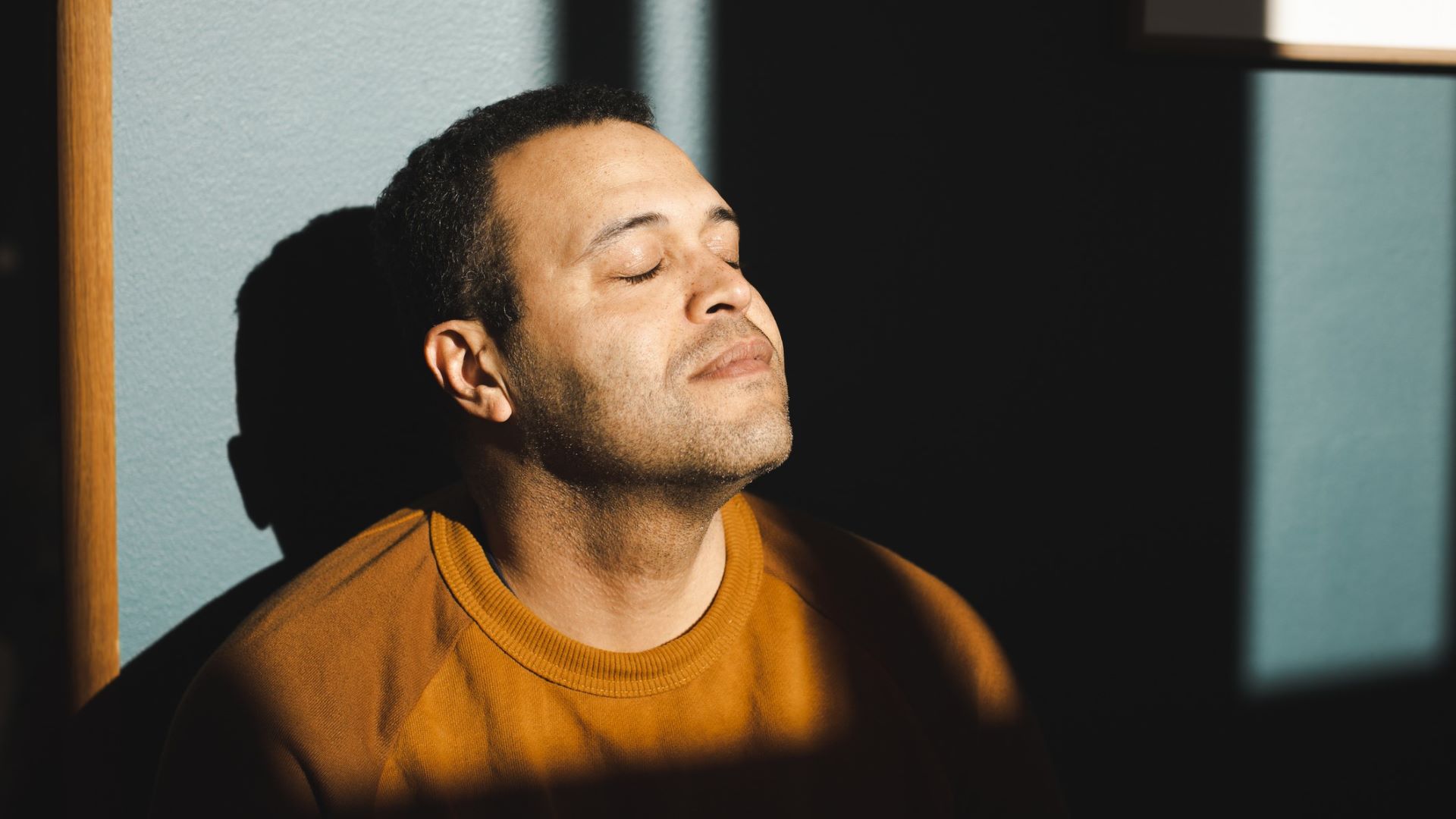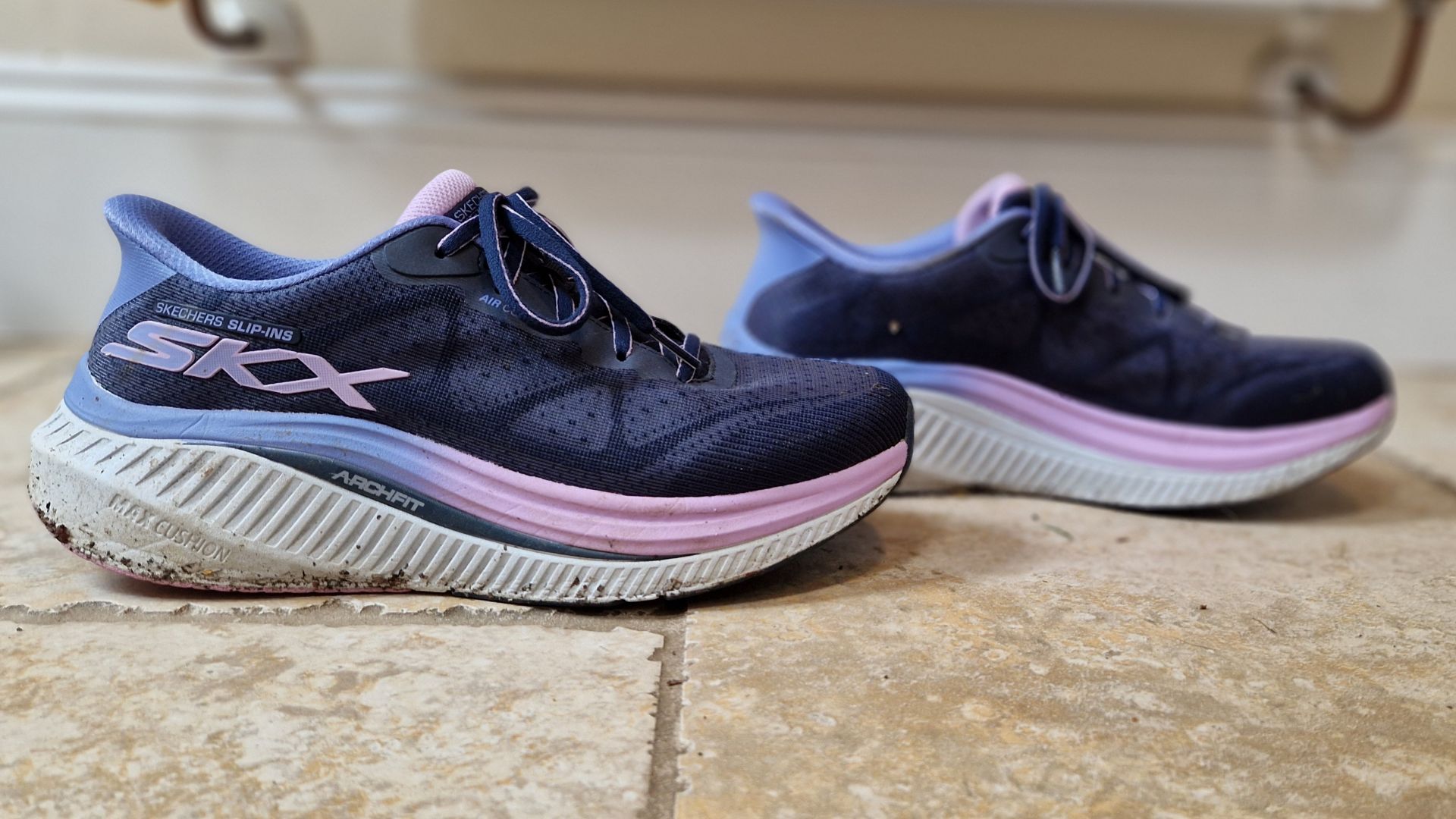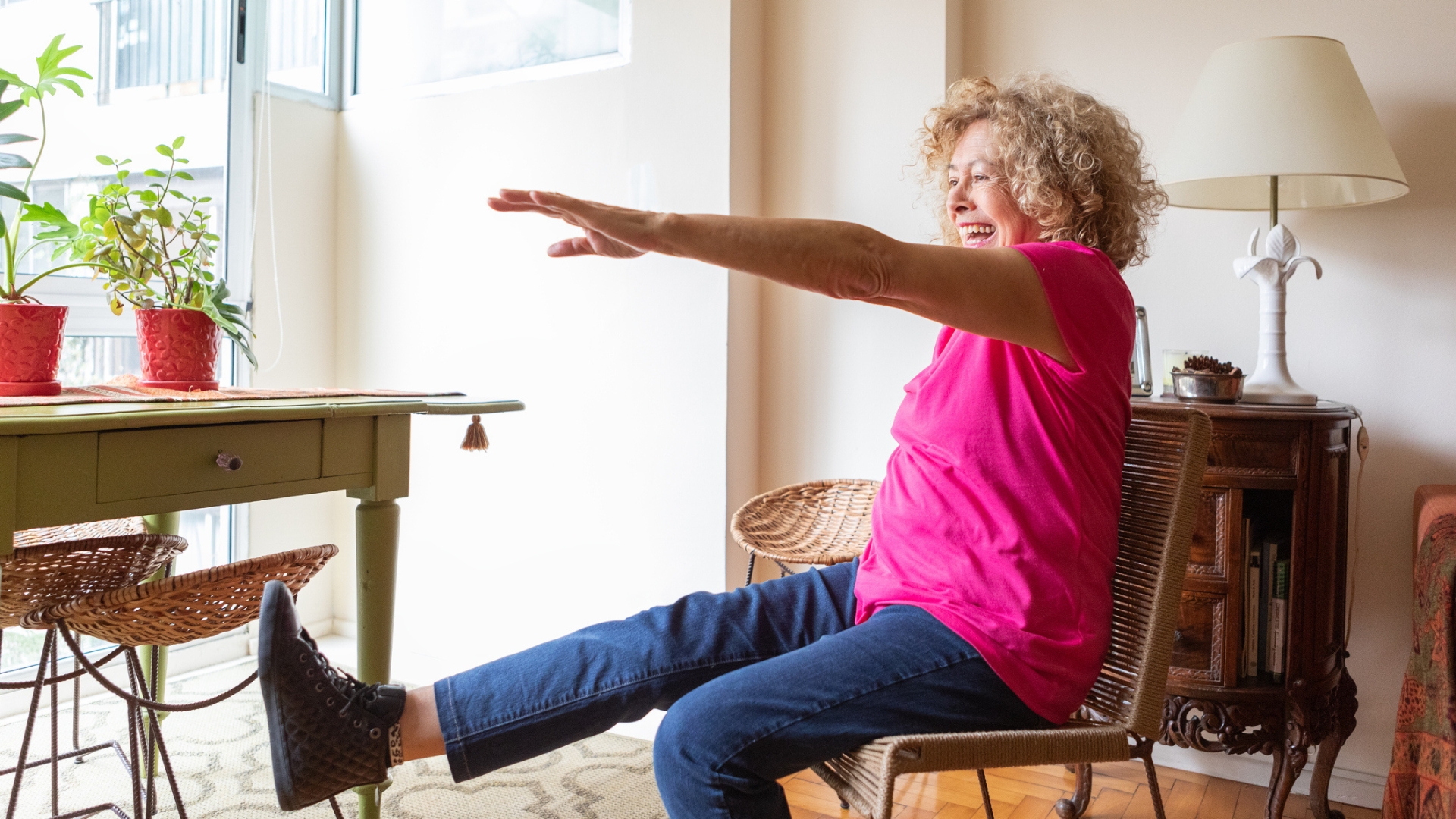A psychotherapist says three minutes of breathwork is all you need to reduce your stress levels during the holidays
This quick rescue session can help calm your mind when things get busy

The holidays can be one of the most stressful periods of the year. Financial pressures and family commitments can make the whole thing seem a bit much.
I personally get very stressed when traveling at Christmas, so I'm always on the look out for calming techniques that can help me manage my journeys. I don't meditate every day, as I find it too time-consuming, but I sometimes turn to short breathwork sessions to help with anxiety.
"Breathwork can be a powerful tool for managing stress by influencing the body's physiological and psychological responses," says Carolyn Cowan, psychotherapist and breathwork teacher.
"Slowing down and deepening the breath signals to the body that it's safe, reducing the intensity of the stress response and lowering cortisol levels, the stress hormone."
Cowan has pulled together a three minute practice for Fit&Well readers to try, which should help you keep calm during the festive period. In her own words, "it can be done wherever—even in the bathroom, on the bus, at your desk."
I decided to try it on a busy work morning, to see if it could help me manage my stress levels.

Carolyn Cowan is a psychotherapist and breathwork teacher. She is a leading practitioner in London but also teaches online. She runs a series of morning breathwork classes called Letting Anger Go.
Pre-breathwork stretches

"The first thing to do before breath practice is to stretch," says Cowan. "Stretching out the body is a key part of breath work and is where the magic happens."
Get the Fit&Well Newsletter
Start your week with achievable workout ideas, health tips and wellbeing advice in your inbox.
She recommends that you stand and stretch your arms to the side, inhaling deeply and breathing into your belly. You can also raise your chin and open your mouth, stretching out your tongue.
If you're doing the breathwork in public and need a subtler move, do shoulder rolls instead. To do this, inhale for five seconds and slowly roll your shoulders up, then exhale for five seconds and roll your shoulders down. You could also try alternating the rolling shoulders for a further minute. Make sure you finish by inhaling and bringing both shoulders up high, almost to your ears, then exhaling and let them drop.
Once you've finished stretching, find a comfortable seat, set a timer for three to five minutes (ideally with a gentle alarm sound) and follow the below instructions.
How to do the three-minute breathwork exercise
- Inhale slowly through pursed lips for five seconds, releasing your belly.
- Hold the breath for one second.
- Exhale quickly and gently through your nose.
- Repeat the above steps until the timer goes off.
- When your timer goes off inhale, hold the breath, and briefly tighten all your muscles.
- Exhale and relax.
Further tips
It's important to expand your belly during the inhalations, as Cowan says this will help expand lung capacity and lower the diaphragm. Diaphragmatic breathing is an important part of breathwork sessions like this one, as it actually helps to activate your parasympathetic nervous system, which is responsible for the body's relaxation response. It acts as a counterbalance to the "fight or flight" response, which is triggered by stressful situations.
Cowan also recommends extending the inhalations and exhalations if you feel comfortable doing so, until they are both around eight or 10 seconds in length.
Following the session, take a couple of minutes to observe your calmer mind before returning to the hustle and bustle. And if you feel your stress levels rising again later "you can do this breathwork practice as many times as needed in a day," says Cowan.
Here's what I noticed, after trying the session.
1. I felt calmer
Taking three minutes of proper rest worked wonders on my stressed-out mind. I spent those three minutes making a conscious effort to return my thoughts to my body and focus on my breathing, which helped me feel calmer.
I will definitely be employing this technique over the holiday period if I feel overwhelmed and need to step away from the festivities.
2. It soothed my digestion
I have some problems with my digestion that are exacerbated by anxiety, so it's not unusual for me to be feeling stressed and battling a bubbly tummy.
After doing this exercise, the feeling of nausea I carry around with me most days eased off and I found myself better able to focus.
I'm not sure if this was due to the physical action of releasing my belly or if concentrating on my breath pulled my focus away from the nausea. Either way, the bubby tummy was less bubbly once I had taken three minutes to breathe.
3. I felt more mindful
Going forward with my day, I felt more grounded and connected to my body; in short, more mindful. I was better able to focus on what I was doing without thinking of the million things I still had ahead of me, which usually causes my thoughts to spiral.
Instead, I paid attention to what I was doing with my hands, remained conscious of my breathing, and how my body felt, even after the breathing exercise was over.
Looking for more ways to relax? Have a read through our guide on how to meditate or stay active with some mindful walking

Lou Mudge is a Health Writer at Future Plc, working across Fit&Well and Coach. She previously worked for Live Science, and regularly writes for Space.com and Pet's Radar. Based in Bath, UK, she has a passion for food, nutrition and health and is eager to demystify diet culture in order to make health and fitness accessible to everybody.
Multiple diagnoses in her early twenties sparked an interest in the gut-brain axis and the impact that diet and exercise can have on both physical and mental health. She was put on the FODMAP elimination diet during this time and learned to adapt recipes to fit these parameters, while retaining core flavors and textures, and now enjoys cooking for gut health.
-
 I have bunions, but I can't feel them with these affordable Skechers walking shoes—now 22% off at Zappos
I have bunions, but I can't feel them with these affordable Skechers walking shoes—now 22% off at ZapposDeal A generous toe box makes the Skechers Max Cushioning Arch Fit Areena perfect for wide feet
By Lou Mudge
-
 Can't do a sit-up? A trainer says you should do these chair-based core exercises instead
Can't do a sit-up? A trainer says you should do these chair-based core exercises insteadNo sit-ups or planks
By Jennifer Rizzuto
-
 Feeling stressed? A Sophrology expert recommends these three mindfulness exercises to calm your mind
Feeling stressed? A Sophrology expert recommends these three mindfulness exercises to calm your mindBreathwork And these stress-management techniques only take a matter of minutes to perform
By Lou Mudge
-
 Three tips from a psychological therapist on how to survive Blue Monday
Three tips from a psychological therapist on how to survive Blue MondayMindfulness Keep these tips in your back pocket for the "saddest day of the year"
By Lou Mudge